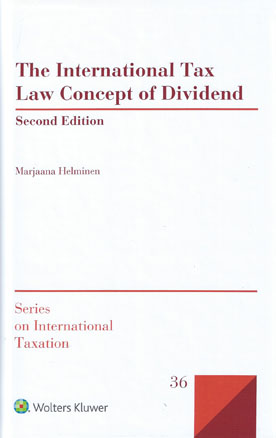
The International Tax Law Concept of Dividend is a unique work that discusses the international tax law rules determining which transactions may be classified and taxed as dividends and how possible classification conflicts may be resolved.
The distribution of profits between corporations’ residents in different jurisdictions gives rise to both significant tax planning opportunities and tax risks. As cross-border transactions between corporations grow in number and complexity, the question of how a profit distribution is classified for corporate income tax purposes becomes increasingly important, particularly in the context of issues such as double taxation, non-taxation and tax neutrality.
What’s in this book:-
This study covers different types of inter-corporate cross-border arrangements where an investor may receive a ‘dividend equivalent return’ directly from a corporate entity or indirectly through a third party. The author examines the tax classification of various inter-corporate transactions, including the following:-
The analysis of each transaction refers to international tax law. Most weight is given to tax treaties and EU tax law, including the base erosion and profit shifting (BEPS) development. The approaches adopted in different states’ national tax law are covered by a more general analysis.
The comprehensive coverage and the practical nature of this book make it an essential acquisition for tax practitioners, researchers and tax libraries worldwide.